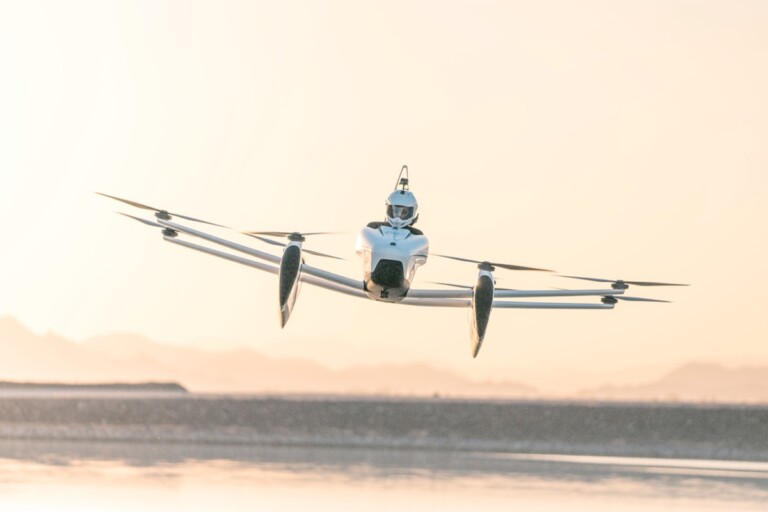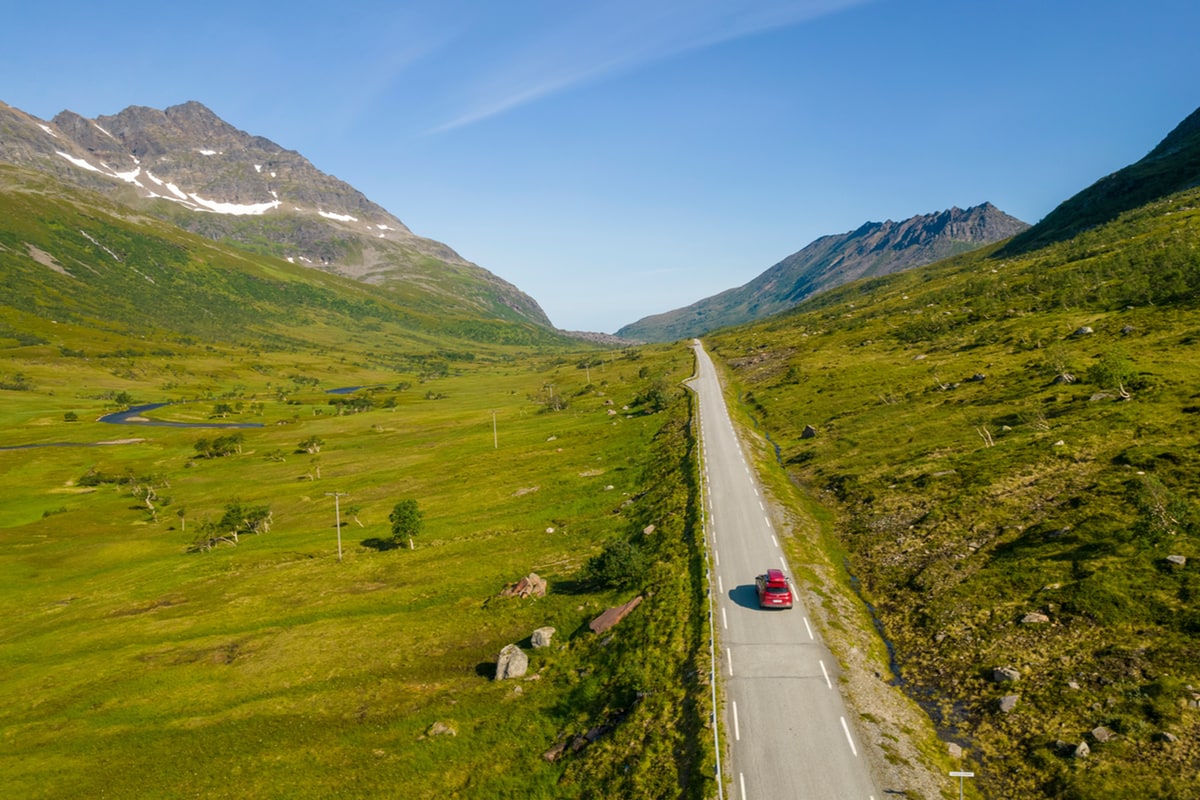
Green Mobility: Powering the Future of Work And Travel
New technologies make flying and driving more sustainable – offering eco-friendly solutions for growing cities, business commutes and vacations free of flight shame.
Cars, planes and trains keep the world connected. People need to travel, and business requires goods to move, often halfway round the world. But there’s an equally clear need for more sustainable mobility solutions, because the transport sector “accounts for nearly one-quarter of global energy-related CO2 emissions”, the IAEA reports.
Making travel and transportation carbon neutral calls for innovation at different levels, from e-mobility to synthetic fuels and new forms of car sharing and commuting. At the recent DLD Munich conference, speakers from different industries presented strategies to tackle this challenging, but vital task.
Fly the Cleaner Skies
Rapid growth has made air travel a notable contributor to global warming. The sector’s CO2 emissions have doubled since 1987, and aligning aviation with the Paris Agreement on climate change will require “significant ambition and investment” as well as “aggressive government policies”, a new report by the International Council on Clean Transportation (ICCT) concludes.
Redesigning planes is one way to make flying greener. But the biggest impact will come from switching fuels: powering plane engines with eco-friendly alternatives to traditional kerosene.
“Sustainable aviation fuels (SAFs) produced from biomass or renewable energy feedstocks are projected to provide the majority of emission reductions under most roadmaps”, the authors of the ICCT report write.
Swiss startup Synhelion is a pioneer in this field. The company, an ETH Zurich spinoff, uses sunlight to produce carbon-neutral synthetic fuels for the aviation industry.
“Starting next year, we target to produce first batches, then supply SWISS and Lufthansa for first flights”, co-founder Philipp Furler tells DLD. The German airline group recently announced a partnership with Synhelion as part of its #MakeChangeFly initiative, which includes pushing the use of SAFs.
Synhelion’s clean fuel can easily be blended with kerosene, which makes it easy to utilize existing infrastructure.
“That’s a huge advantage”, Furler says. “We don’t want to disrupt industries which need to be in place. We want to bring in our innovation in order to help make this industry green.”
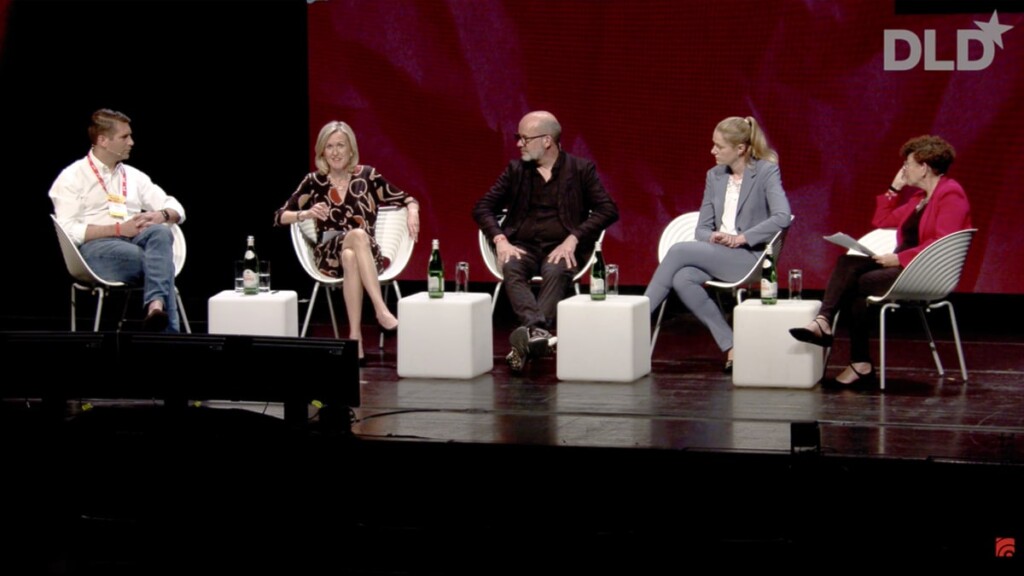
Accelerating Clean Tech: Watch the DLD Munich 2022 panel discussion with Philipp Furler, Ann Mettler, Heike Freund and Rafael Laguna de la Vera, moderated by Jennifer Schenker.
“The technology is there”, Lufthansa board member Christina Foerster emphasized at DLD Munich. “We have to scale it and bring it to people”, she said, discussing clean aviation with Club of Rome co-president Sandrine Dixson-Declève and Felicitas von Peter (Active Philanthropy).
The two big challenges are ramping up production and making sustainable aviation fuels cheaper. Currently, SAFs cost around 2 to 3 times as much as fossil jet fuels, the aviation industry notes in its Waypoint 2050 report (PDF). But the authors are optimistic that “costs will come down as supply and technology improves”.
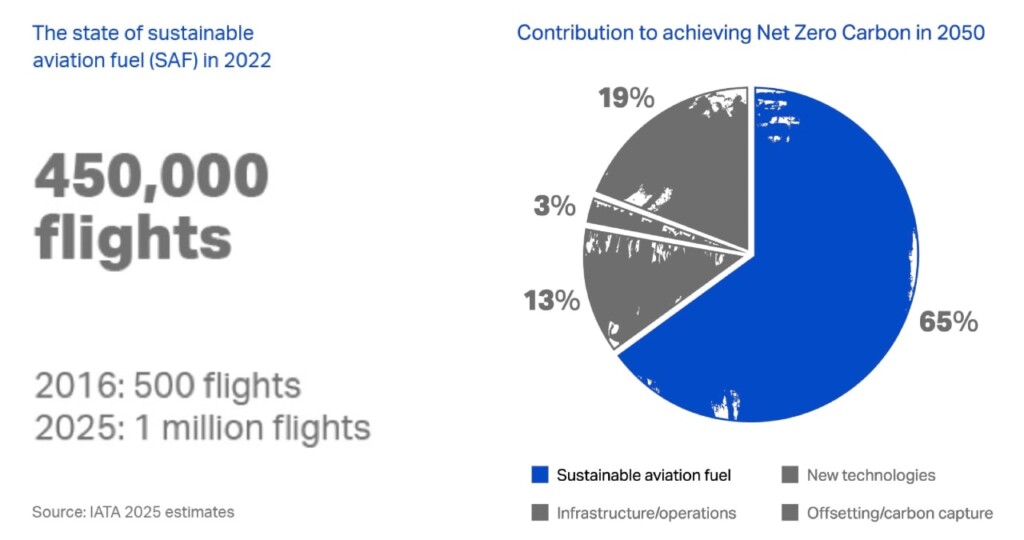
Clean aviation: Alternative fuels are the most promising way to make flying greener, the airline industry group IATA says (PDF). But there’s a need to speed up production and reduce cost.
Lufthansa now offers status miles to customers willing to pay a bit more to minimize their carbon footprint. “And it works”, Foerster says. “You link the people who have the purchasing power with the [idea that] ‘green is sexy’, and you give them what they want for doing something that you believe is right.”
Another approach to achieving clean mobility is a mindset shift, Sandrine Dixson-Declève argues. Younger people often “are already living a greener life”, she pointed out at DLD Munich. “Many of them, for example, don’t even own a car. At least in Europe, we’re seeing a real shift in the fact that what they want is not a car, but mobility.”

Can the Sky Be Green? Watch the DLD Munich 2022 panel discussion with Felicitas von Peter, Sandrine Dixson-Declève and Christina Foerster.
A Car When You Need It
Car owners have the freedom to go wherever they want, whenever they want. But this freedom comes at a cost. And increasingly, thanks to car sharing and other mobility services, “people can have freedom – indeed, even more freedom – without having to buy their own vehicles, search for parking, and pay for fuel (and a list of other expenses)”, consultancy McKinsey points out.
A new concept comes from French startup Virtuo, which promises hassle-free car rentals via mobile app.
“People can either pick up their cars from a station or have their car delivered within two hours to their doorstep”, CEO and co-founder Karim Kaddoura explains. “It’s really car on demand, car ownership made different, car rental made different.”
While car sharing focuses on short, inner-city trips, Virtuo hopes to win over customers who need a car for longer – but not enough to buy a vehicle outright.
“You use a Virtuo from one day up to a couple of months”, Kaddoura says. A service team will clean and inspect the car, he emphasizes, but there are no rental stations, and the app takes care of all formalities involved in the booking.
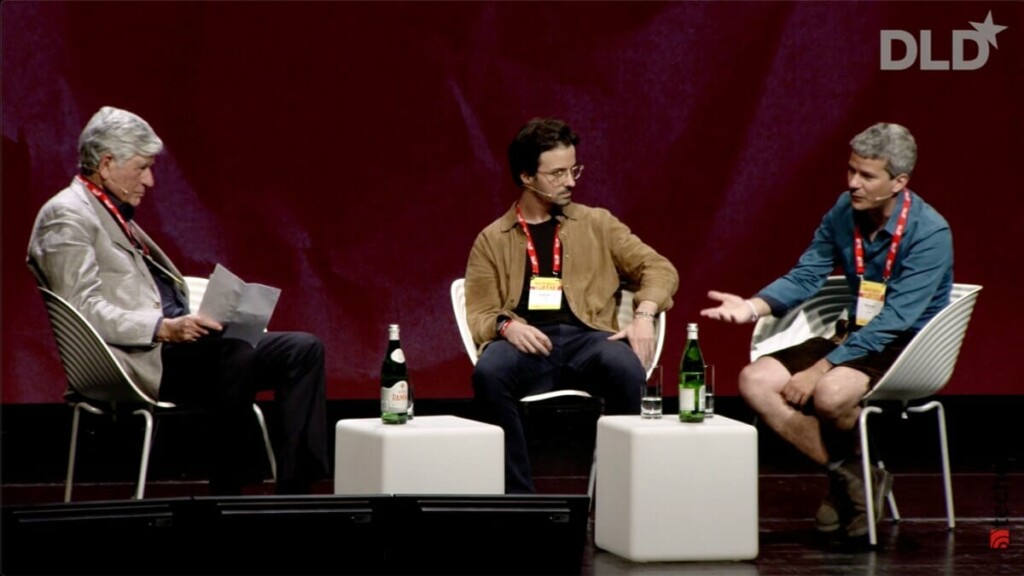
Crossing the Border: Watch the DLD Munich 2022 panel discussion with Maurice Lévy, Karim Kaddoura and Romain Moulin about startups and innovation in Europe.
This promise of making car rental a seamless experience speaks to a new generation of customers used to streaming, food delivery and other on-demand services, Kaddoura believes.
“You shouldn’t have to possess a car on a 100 percent basis”, he says. “That’s unsustainable for the planet and inefficient from a financial perspective as well.”
The Virtuo CEO’s vision of mobility-on-demand is remarkably close to how some car makers themselves see the market evolving.
“The future of mobility is you use a car when the car is the perfect vehicle for you”, BMW’s head of development, Frank Weber, told DLD founder Steffi Czerny at DLD Munich.
Within cities, public transport or micromobility services might be a better choice than one’s own car, he agrees. “You have, in a sense, one app that guides you”, Weber says. “It’s all one system”, and everything needs to work seamlessly together. “That’s really important. It should be super simple.”
The vehicles also need to be designed and produced differently, Weber stresses. “Sustainability is not something that is added on top”, he says. “The whole product from start to finish has to be one integrated system that is truly sustainable.”

Creating Human-Centric Cars: Watch the DLD Munich 2022 conversation between Steffi Czerny and Frank Weber about technology shaping the future of mobility.
Redesigning Cities
The daily commute to the office is back. Even tech companies that quickly shifted to remote work during the Covid pandemic now insist that employees return to their desks.
To famed architect and MIT researcher Carlo Ratti, this does not come as a surprise. Physical encounters are essential to innovation and successful teamwork, he told the audience at DLD Munich. “If we don’t meet in physical space our social networks become weaker and weaker.”
Ratti and his team at the MIT Senseable City Lab collected data over the course of the pandemic to back this up. The study clearly shows that remote work cannot replace in-person meetings, Ratti reports. “Based on our research, we believe we need to meet in physical space.”
But this doesn’t mean we need to go back to the previous rhythm of a daily office commute, Ratti emphasizes. “I’m pretty sure a lot of us want to continue with the flexibility”, he says. “Working from home, working from another city, organizing our lives in a different way. And that means, how can we redesign the office?”
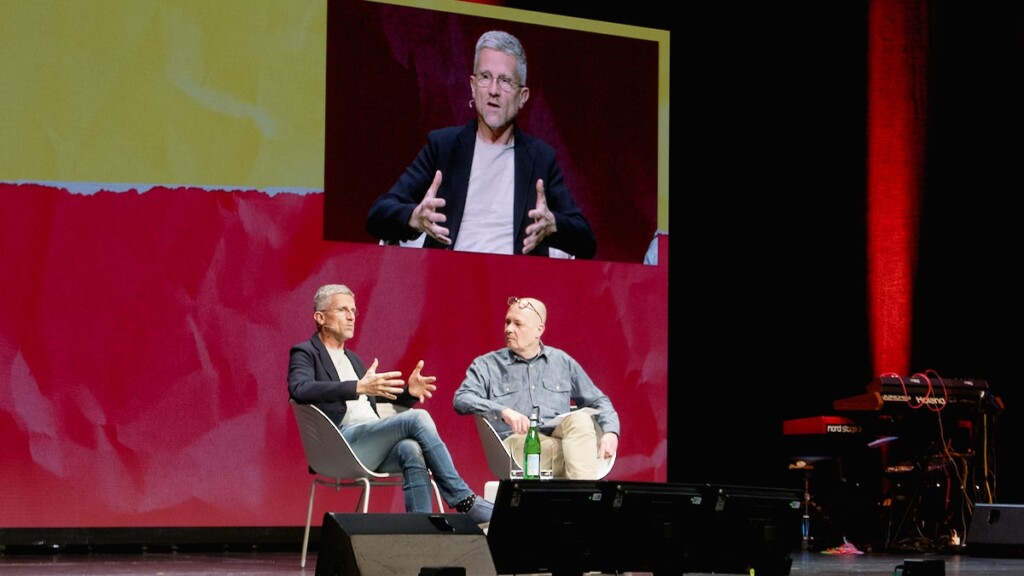
Future Cities: Watch the DLD Munich 2022 conversation between Carlo Ratti and Andrian Kreye.
The ideal outcome would be a “choreography of office life that actually allows us to strengthen our networks”, Ratti says. “And that clearly then turns into architecture.”
The researcher’s work also shows that many cities, in their current form, create invisible ghettos – for example between knowledge workers and service workers. By studying cell phone data, Ratti and his colleagues found out that this divide increased during the pandemic.
These new kinds of ghettos are hard to see with the naked eye. But with the help of technology it’s possible to make them visible. And “once we’re able to see them, that’s the first step in order to fix them”, Ratti says.
One way to encourage people to mix and mingle is in a surprisingly simple way, which also makes cities greener.
“Parks do a lot to bring us together and create new connections”, Ratti says, and public spaces in general are “beautiful social connectors and integrators”.
To him, the path toward a healthier future is clear: “Architecture responds to life”, Ratti says. “So I think what we should start doing is spend more time interacting in physical space.”


